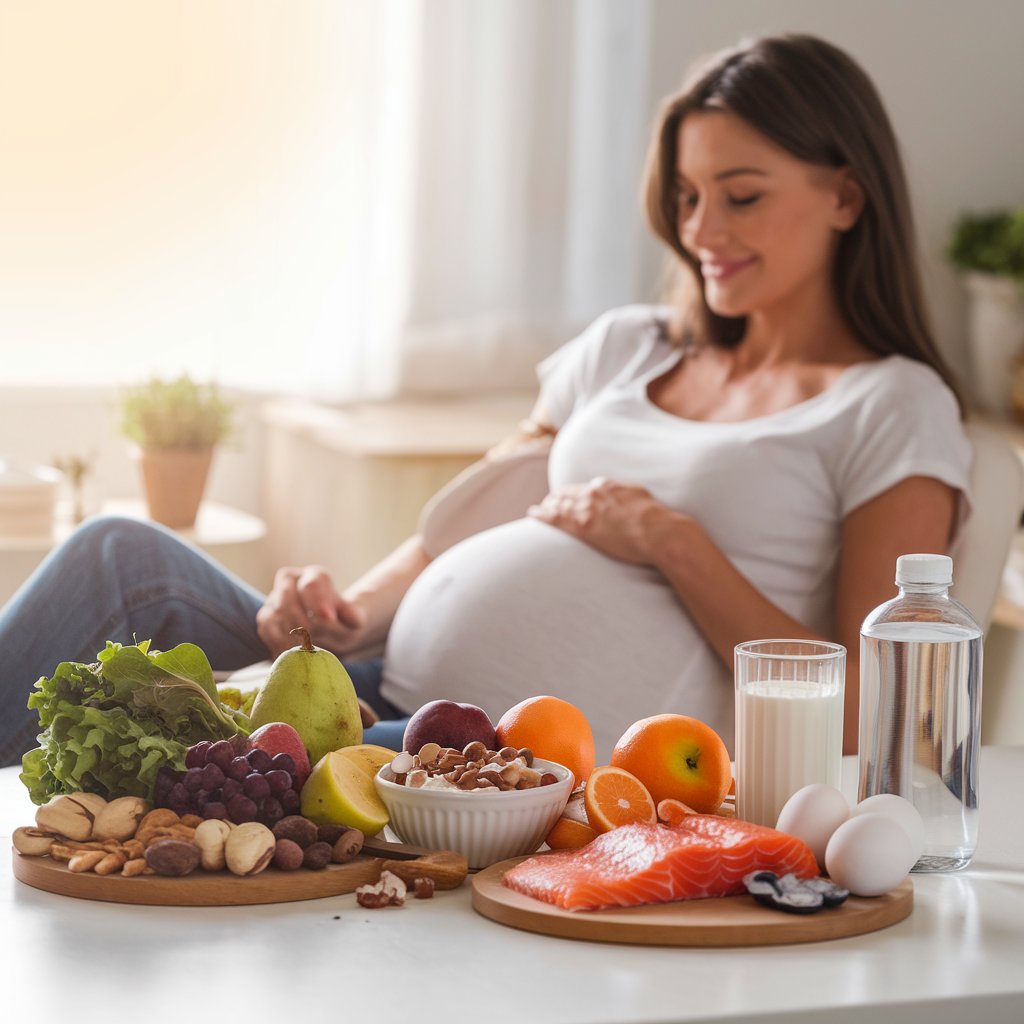Pregnancy is one of the most transformative periods in a woman’s life, and proper nutrition plays a vital role in ensuring the health and well-being of both the mother and the baby. Eating a well-balanced diet filled with essential nutrients can make a huge difference in your pregnancy journey. Whether you’re a first-time mom or going through it again, this guide will help you focus on the most important nutrition tips to follow during pregnancy.
1. Prioritize Folate-Rich Foods
Folate (or folic acid) is one of the most important nutrients for pregnant women. It helps reduce the risk of birth defects, especially those affecting the brain and spinal cord, like spina bifida. Incorporate foods rich in folate into your diet, such as:
– Leafy green vegetables (spinach, kale)
– Fortified cereals
– Beans
– Oranges
Folic acid supplements are also recommended by healthcare providers, especially during the first trimester when neural tube development occurs.
2. Eat Lean Protein for Muscle Growth and Development
Protein is essential for the growth of fetal tissues, including the brain. It also helps with maternal tissue growth and maintains the health of your uterus and breasts. Some excellent sources of lean protein include:
– Chicken breast
– Turkey
– Fish (low in mercury)
– Eggs
– Lentils and legumes
Aim for around 75-100 grams of protein daily, depending on your weight and activity level.
3. Focus on Iron-Rich Foods to Prevent Anemia
Pregnant women need more iron than usual because their blood volume increases significantly to supply oxygen to the baby. Iron deficiency can lead to anemia, causing fatigue and weakness. The best iron-rich foods include:
– Red meat
– Poultry
– Fish
– Spinach
– Iron-fortified cereals
Pair these with vitamin C-rich foods like citrus fruits to improve iron absorption.
4. Incorporate Healthy Fats for Baby’s Brain Development
Healthy fats, especially omega-3 fatty acids, are critical for the development of your baby’s brain and eyes. Some great sources of omega-3s include:
– Fatty fish like salmon (limit fish high in mercury)
– Flaxseeds
– Chia seeds
– Walnuts
– Omega-3 fortified eggs
Be sure to include these in your diet, but avoid trans fats and processed foods as they can harm both you and your baby.
5. Stay Hydrated to Maintain Fluid Levels
Staying hydrated is essential during pregnancy. Adequate fluid intake helps with the production of amniotic fluid, supports blood flow, and prevents constipation. Pregnant women should aim to drink at least 8-12 cups of water per day. You can also include hydrating foods like watermelon, cucumbers, and oranges.
If plain water isn’t appealing, try adding a splash of lemon or drinking herbal teas (approved by your doctor).
6. Include Calcium-Rich Foods for Strong Bones
Calcium is vital for building your baby’s bones and teeth. Pregnant women need around 1,000 milligrams of calcium daily. Good sources of calcium include:
– Dairy products (milk, yogurt, cheese)
– Leafy greens
– Tofu
– Almonds
– Fortified plant-based milks
If you don’t get enough calcium, your body will pull it from your bones, increasing your risk of osteoporosis later in life.
7. Don’t Forget Fiber for Digestive Health
Constipation is a common issue during pregnancy due to hormonal changes and pressure from the growing uterus. To combat this, ensure you get enough fiber in your diet. Fiber helps to keep your digestive system moving and prevent constipation. Some fiber-rich foods are:
– Whole grains (brown rice, oats, quinoa)
– Fruits (apples, pears, berries)
– Vegetables (broccoli, carrots, peas)
– Beans and legumes
Drink plenty of water alongside high-fiber foods for better digestion.
8. Choose Complex Carbohydrates for Steady Energy
Carbohydrates are a pregnant woman’s best friend when it comes to maintaining energy levels. However, it’s important to focus on complex carbs rather than simple sugars. Complex carbohydrates provide long-lasting energy and help with blood sugar control. Include foods like:
– Whole grains (brown rice, whole wheat bread)
– Sweet potatoes
– Oatmeal
– Barley
Avoid sugary snacks and drinks that can cause a rapid spike and crash in your energy levels.
9. Get Enough Vitamin D for Immune Health
Vitamin D plays a key role in supporting your immune system, promoting healthy bone development, and aiding calcium absorption. Many people, including pregnant women, are deficient in this vitamin. Some sources of vitamin D are:
– Sunlight (safely exposing your skin to the sun)
– Fatty fish
– Fortified foods (orange juice, cereals)
– Vitamin D supplements (as recommended by your doctor)
Speak with your healthcare provider if you need a supplement to meet your daily needs.
10. Monitor Your Caffeine Intake
While it’s fine to indulge in a cup of coffee occasionally, pregnant women should limit their caffeine intake to less than 200 milligrams per day (about one 12-ounce cup of coffee). Too much caffeine can lead to complications like low birth weight or miscarriage. Instead of coffee, try:
– Decaffeinated beverages
– Herbal teas
– Water infused with fruits
Always check the labels on energy drinks, chocolate, and soft drinks as they can contain hidden caffeine.
Final Thoughts on Nutrition During Pregnancy
Eating a nutritious, balanced diet is essential for a healthy pregnancy and the well-being of both mother and baby. These tips are just a starting point, but always listen to your body and consult with your healthcare provider before making any major changes to your diet. Every pregnancy is unique, so it’s essential to tailor your nutrition plan based on your individual needs.
By focusing on nutrient-dense foods, staying hydrated, and making mindful choices, you’re providing the best foundation for your baby’s development and your own health. Remember, taking care of yourself is taking care of your baby!
